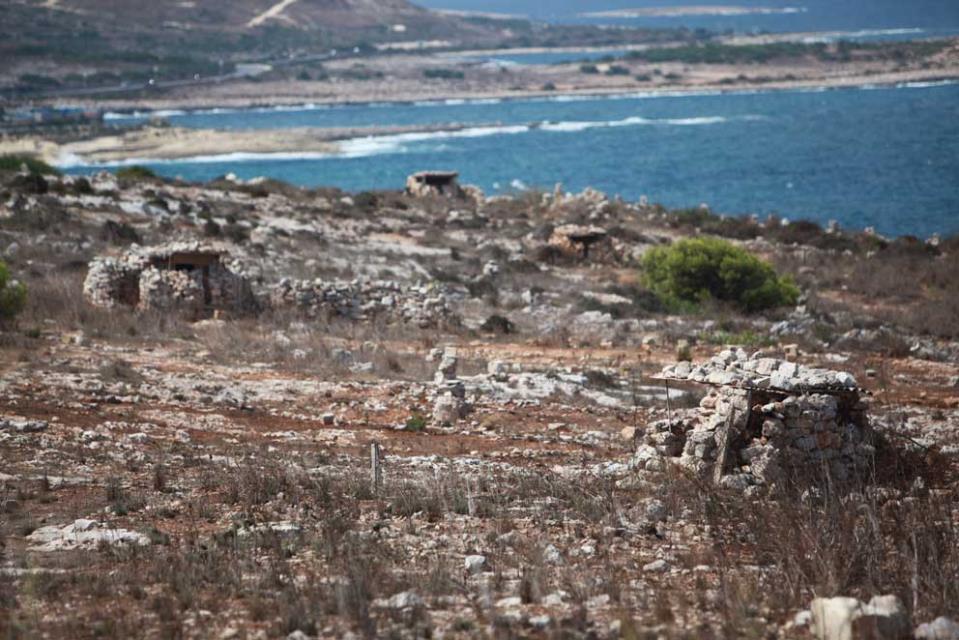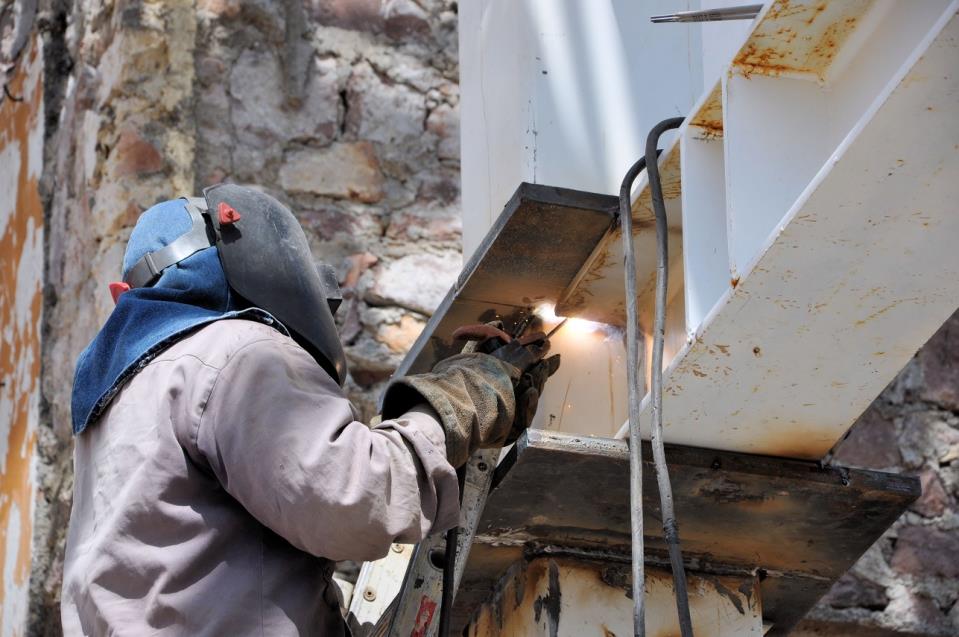Prime Minister Joseph Muscat never said that he would resign if the power station is not finalised in time, although there was a two year commitment to finalise the project, but that he would only resign if the whole energy plan was not successfully implemented as planned, PL MEP Miriam Dalli said.
Dr Dalli said that power station does not cover the whole plan but is only part of the plan, and while it is evident that there will be a delay, the commitment that the power station will be built as stated is pretty clear.
Dr Dalli was replying to questions made by this newsroom if she has any idea where the money will come from to sustain the energy tariff reductions for industry since the prime minister was not clear on this issue when quizzed by journalists many a time. Dr Muscat's reply was that there won't be any additional tax burdens on taxpayers to sustain industry's tariff reductions but stopped short of saying where the money would come from.
Dr Dalli added that Minister Mizzi explained that the cuts for business were factored in a seven year business plan for Enemalta.
When the prime minister was asked if he would resign due to the fact that he kept saying, along with the Energy Minister, that the new power station work's are on track when in fact they hadn't even started, when the government has admitted that the project would be delayed, Dr Muscat said that the PL's electoral pledge was that energy reductions for households and industry would be reduced, and one of the pledges, that of cheaper energy bills for households, has already been implemented.

'Worrisome' to learn that the Frontex chief was unaware Mare Nostrum is to be scrapped
Dr Dalli said that it was worrying to learn that the Frontex chief said he was unaware that Operation Mare Nostrum was to be scrapped.
Operation Mare Nostrum which ended on November 1 is to be replaced by an EU border operation codenamed 'Triton'.
When asked if this is a good enough replacement, Dr Dalli replied: "Operation Triton is very different to the Mare Nostrum concept since it is a type of border control (although those participating in the operation have to intervene in the event boat people are in distress) whereas Mare Nostrum was a search and rescue operation.
Another important point raised by Dr Dalli is the fact that Mare Nostrum covered a stretch of 172 miles while Triton only covers 42 miles. She said that despite the fact that some argued that Mare Nostrum in itself served as pull factor since those who took the plunge to cross the seas, felt that there was Mare Nostrum to save them in the event they faced challenges while crossing, the reality is that the Mediterranean is surrounded by instability. "The EU will have to wait and see whether Triton would work but the Mediterranean will be definitely affected as a result.
"When the Italians said that Mare Nostrum would end, a number of questions were raised. Initially, it was to be replaced by Frontex Plus but now it results it won't. Questions raised included how this would operate," she said.
Dr Dalli explained that due to the instability in a number of countries, such as Libya, Syria and the Middle East, a number of the above mentioned country nationals are seeking new pastures in Europe and abandoning their country of origin. She said that the only way they can cross to Europe is through the Mediterranean seas.
She pointed out that out of the 4,000 migrants who perished during their perilous crossings, 3,000 lost their lives while crossing the Mediterranean.
Dr Dalli highlighted that despite the fact that 'Triton' will be a border control concept, the new EU commissioner for home affairs is looking to bring about a mix of border control and S&R but this, she said, is a long term vision and the in the meantime it is most likely more poeple will lose their lives when crossing the Mediterranean, especially now that Mare Nostrum has been scrapped.

Hunting: 'Hunters should avoid engaging in illegalities since it puts bad spotlight on Malta'
When asked what was so different this time around for hunting to have been suspended when breaches in the law still occurred during the spring hunting season but back then the season was not halted in the same way it was during autumn, Dr Dalli said: "I do not know exactly why it was stopped but from what I read it is not only a question of hunting but poaching, where poachers cash in very well as a result.
"Any illegality should be stopped and hunters should abide by the Birds' Directive regulations since if they don't, Malta would end up in the spotlight and this, won't help especially at EU level," she said.
Migration: Task Force measures being implemented at a snail's pace
Following the tragedy in Lampedusa last year, where hundreds of migrants drowned, the Commission had proposed ways and taken measures to better address migratory and asylum flows, and prevent migrant deaths in the Mediterranean.
During a meeting of the Justice and Home Affairs Ministers held in December, the European Commission presented the concrete steps to be taken, 38 in all. The main actions and initiatives were presented in a Staff Working Document called 'Implementation of the Communication on the Work of the Task Force Mediterranean' a few months before the meeting.
The Commission had committed itself in ensuring that actions identified by the Task Force Mediterranean are implemented, including to better cooperate with countries of origin and transit of the migrants, open new ways for legal migration while at the same time fighting together the criminal networks that are behind these deadly journeys.
Dr Dalli said that the task force measures lack "visibility" and she has aired her concerns in the European Parliament on this matter.
When asked if the measures are being implemented, Dr Dalli said they are, but at a snail's pace.
Germany pushing for quotas system
The German Home Affairs Ministry is pushing for countries to take in migrants according to the country's population size.
On this proposal, Dr Dalli said that although it is a good idea, it is still in the air and needs to be discussed. She said that if implemented it can have implications though.

Precarious employment
In an interview with this newsroom prior to the MEP elections earlier this year, Dr Dalli had pledged that she will join in the fight against precarious working conditions.
It seems she has stuck to her pledge since earlier this week, she kickstarted discussions with the General Workers Union representatives in a bid to continue combating precarious work.
"The issue has been highlighted within the European Parliament; precarious employment doesn't just happen in Malta and now the EU is acknowledging that it is a reality and one which needs to be addressed but we need to work harder," she said.
When asked if combating precarious employment may indirectly lead to loss of jobs, Dr Dalli said that she fully understands people who lose their jobs when company's promoting such conditions are found out and snubbed, but she emphaissed that "we must all stand our ground since it is only by doing so that this phenomena could very well be eradicated".

Online child safety
Dr Dalli said that she is currently working on a campaign to enhance online child safety awareness.
"It is vital we create awareness among parents and children when it comes to internet safety," she said, particularly to help combat online bullying.
"By the time we got to tackle schoolyard bullying, this new phenomena started off, that of online bullying," Dr Dalli said.
Environment
When asked about what is being done on an EU level in order to move Europe away from the use of oil as a source of energy, Dr Dalli said that the EU is looking towards renewable energy and that natural gas is being used as a transitory source.
"The EP is pushing the idea and looking at new routes and sources of energy, mainly pushing for renewable energy which is the cleanest source of energy.
"The EU is dependent on Russia for gas but the diplomatic situation is what it is; for instance the Eastern Mediterranean, Cyprus and Algeria are all sources the EU should look at and diversify," Dr Dalli said.

She said that the Mediterranean gas hub idea came up during the European Energy Security Strategy 2014.
While on the subject, EU Member States agreed on Wednesday to allocate 647 million euros to support priority infrastructure projects.
The bulk of the support goes to gas projects in the Baltic region as well as in Central Eastern and Southeastern Europe, according to a media statement of the European Commission. Funding will come from an EU program called the Connecting Europe Facility (CEF).
The supported projects are to increase Europe's energy security and help end the isolation of Member States from EU-wide energy networks.
The projects will also contribute to the completion of a European energy market and the integration of renewable to the electricity grid.
Carbon capture system idea floated within EP
Dr Dalli argued that a carbon capture system could be used to reach EU Member States emission targets.
"The system captures carbon as its name implies and the idea has been floated within the EP; to reach the targets with renewables alone can happen, but when it comes to greenhouse emissions it may not be possible so this system can help do the job to reduce such emissions," she said.